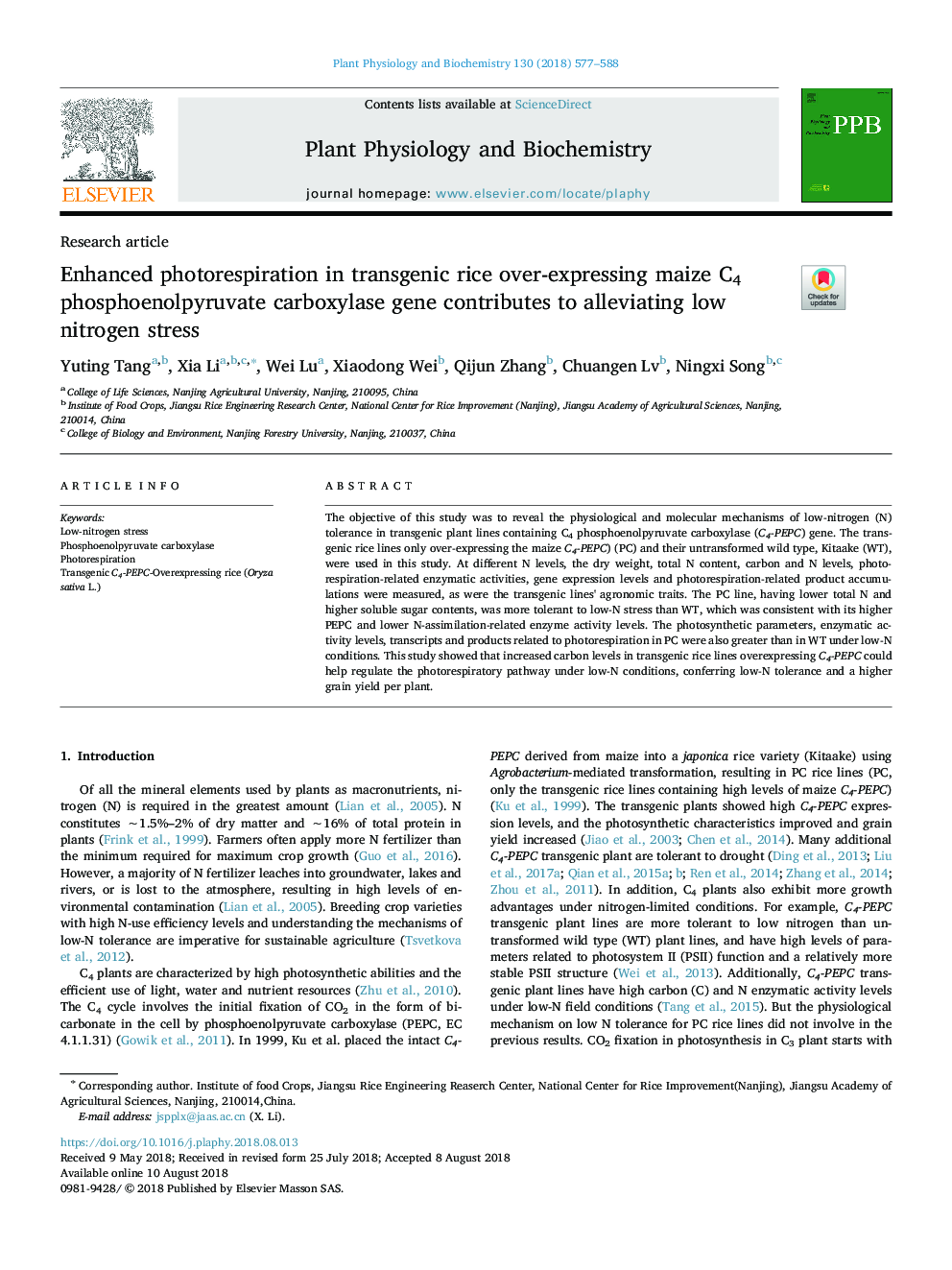| Article ID | Journal | Published Year | Pages | File Type |
|---|---|---|---|---|
| 8352645 | Plant Physiology and Biochemistry | 2018 | 12 Pages |
Abstract
The objective of this study was to reveal the physiological and molecular mechanisms of low-nitrogen (N) tolerance in transgenic plant lines containing C4 phosphoenolpyruvate carboxylase (C4-PEPC) gene. The transgenic rice lines only over-expressing the maize C4-PEPC) (PC) and their untransformed wild type, Kitaake (WT), were used in this study. At different N levels, the dry weight, total N content, carbon and N levels, photorespiration-related enzymatic activities, gene expression levels and photorespiration-related product accumulations were measured, as were the transgenic lines' agronomic traits. The PC line, having lower total N and higher soluble sugar contents, was more tolerant to low-N stress than WT, which was consistent with its higher PEPC and lower N-assimilation-related enzyme activity levels. The photosynthetic parameters, enzymatic activity levels, transcripts and products related to photorespiration in PC were also greater than in WT under low-N conditions. This study showed that increased carbon levels in transgenic rice lines overexpressing C4-PEPC could help regulate the photorespiratory pathway under low-N conditions, conferring low-N tolerance and a higher grain yield per plant.
Related Topics
Life Sciences
Agricultural and Biological Sciences
Plant Science
Authors
Yuting Tang, Xia Li, Wei Lu, Xiaodong Wei, Qijun Zhang, Chuangen Lv, Ningxi Song,
